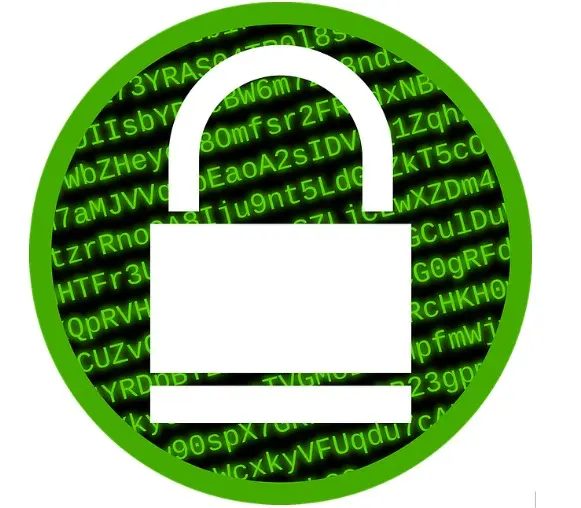In today’s digital age, the importance of protecting personal and business data cannot be overstated. With cybercrime on the rise and hackers becoming increasingly sophisticated, it is crucial to utilize powerful tools to keep information safe. One such tool is encryption. This article will delve into the power of encryption, explaining its basics, role in data security, importance in the face of cybercrime, and how it can be implemented both in our personally and professionally.

Understanding the Basics of Encryption
Before diving into the world of encryption, it is essential to understand what it actually is. In simple terms, encryption is the process of converting data into an indecipherable form for anyone who does not have the decryption key. Encrypting data will ensure that even if hackers manage to access it, they will be unable to make sense of it.
Encryption has been used for centuries as a means of protecting sensitive information. From ancient civilizations using secret codes to modern-day encryption algorithms, the goal has always been to keep information secure and confidential.
What is Encryption?
Encryption involves using complex algorithms to scramble the data, rendering it unreadable without the decryption key. This key acts as the digital equivalent of a lock and must be kept secret for the data to remain protected. Decrypting the data becomes an incredibly challenging task without the key, often requiring substantial computational power.
The process of encryption can be thought of as a puzzle, where the data is transformed into a jumbled mess of characters. Only those who possess the decryption key hold the solution to this puzzle and can unlock the true meaning of the data.
Different Types of Encryption
Encryption techniques can vary depending on the level of security required and the nature of the data being protected. Some common types of encryption include symmetric encryption, asymmetric encryption, and hashing.
Symmetric encryption, also known as secret key encryption, utilizes the same key for both encryption and decryption. This means that anyone who possesses the key can encrypt and decrypt the data. While symmetric encryption is relatively fast and efficient, the challenge lies in securely sharing the key between the sender and the recipient.
On the other hand, asymmetric encryption uses a pair of keys – a public key for encryption and a private key for decryption. The public key can be freely shared with anyone, while the private key must be kept secret. This type of encryption provides a higher level of security, as even if the public key is intercepted, the data cannot be decrypted without the private key.
Hashing, another form of encryption, involves converting data into a fixed-size string of characters, making it impossible to reverse the process. This technique is commonly used for verifying the integrity of data, as even a small change in the input will result in a completely different hash value.
Understanding the different types of encryption is crucial in determining the most appropriate method to protect your data. Each type has its own strengths and weaknesses, and the choice depends on factors such as the sensitivity of the information and the level of security required.
The Role of Encryption in Data Security
Encryption plays a pivotal role in data security. Encryption algorithms safeguard sensitive information such as passwords, credit card details, and personal communications. Encryption provides a layer of protection that prevents unauthorized access to data, mitigating cybercrime risks.
Real-World Examples of Encryption at Work
Encryption is not just a theoretical concept; it is actively used in various real-world scenarios to protect sensitive information. One notable example is the use of encryption in online banking. When bank accounts are accessed or transactions are made online, the data is encrypted to ensure that all the information remains secure. This encryption process prevents hackers from intercepting personal and financial data, reducing the risk of identity theft and fraudulent activities.
Similarly, encrypting is widely used in messaging apps to hide private conversations from prying eyes. Whether it’s chatting with friends, family, or colleagues, encryption ensures that these messages are protected from unauthorized access. This is particularly important in today’s digital age, where communication happens predominantly through electronic means.
Moreover, encryption is also employed in the healthcare industry to protect patients’ medical records and other sensitive information. By encrypting this data, healthcare providers can ensure that only authorized personnel can access and view patient records, thereby maintaining patient privacy and confidentiality.
In conclusion, encryption plays a crucial role in safeguarding personal data. It provides a robust layer of protection against cyber threats and unauthorized access. Whether it’s securing financial transactions, protecting private conversations, or maintaining patient privacy, encryption is an essential tool in the realm of data security.

The Threat of Cybercrime and the Importance of Encryption
The rising threat of cybercrime is a pressing concern for individuals and organizations alike. With hackers constantly finding new ways to infiltrate systems and steal valuable data, it is crucial to adopt robust security measures. Encryption serves as a powerful defense against these malicious actors, making it significantly more challenging for them to access and exploit data.
The Rising Threat of Data Breaches
Data breaches have become alarmingly common, with high-profile incidents making headlines frequently. Organizations of all sizes have fallen victim to these attacks, resulting in substantial financial losses and hefty fines due to privacy regulations. By encrypting sensitive data, businesses can reduce the likelihood of data breaches and protect their reputation.
How Encryption Can Thwart Hackers
Hackers thrive on accessing valuable information and exploiting it for their gain. Individuals and organizations can significantly hinder these malicious activities by implementing strong encryption protocols. Even if hackers manage to intercept encrypted data, the decryption process becomes an arduous task, often dissuading them from pursuing their nefarious objectives.
The Future of Encryption
As technology continues to evolve, so too does the field of encryption. Researchers and developers are constantly working on new encryption techniques and technologies to stay ahead of hackers. This section will explore some of the recent advancements and discuss the ongoing battle between encryption and hacking.
Advances in Encryption Technology
Advances in computational power have enabled the creation of more complex encryption algorithms. Quantum computing, in particular, holds great promise for developing encryption methods that are even more secure. However, it also poses a potential risk, as quantum computers could potentially crack existing encryption methods.
The Ongoing Battle Between Encryption and Hacking
The battle between encryption and hacking is a perpetual one. Hackers adapt and devise new methods to bypass these defenses as encryption techniques become more robust. It is a constant cat-and-mouse game, with each side trying to outsmart the other. However, with the right combination of encryption and other security measures, the good guys can stay one step ahead of cybercriminals.
In conclusion, encryption is a powerful tool that plays a vital role in keeping data safe from hackers. Understanding the basics of encryption, its role in data security, and the ever-present threat of cybercrime is crucial in today’s digital landscape. Encryption can protect sensitive information, thus contributing to a more secure online environment. As technology continues to advance, encryption will undoubtedly remain a cornerstone of data protection, providing a shield against those who seek to exploit our valuable information. Contact PPGS ™ today to schedule an objective assessment of your data security privacy policy and security measures.
